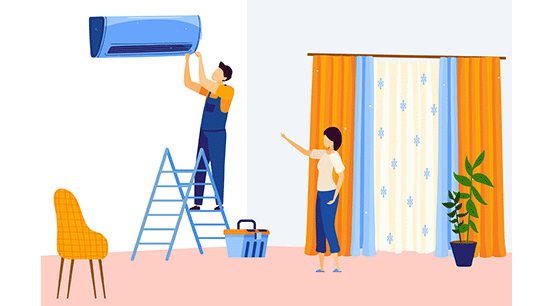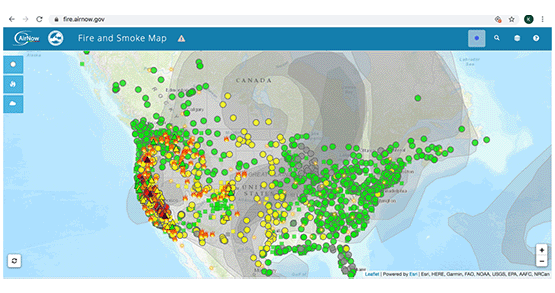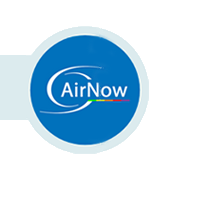Know Your Risk
Everyone should reduce their exposure to wildfire smoke. Generally, most healthy adults and children will experience relatively minor effects (e.g., respiratory irritation) and recover quickly from smoke. However, certain groups may be at greater risk of experiencing more severe health effects. Those most at risk include:
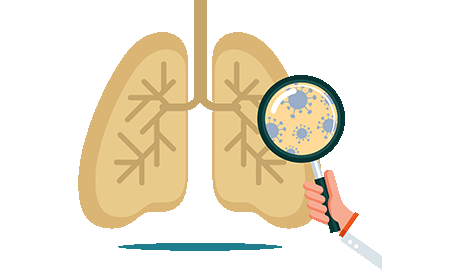
people with lung disease,
such as asthma and COPD
such as asthma and COPD

people with heart disease

children and teenagers

older adults (generally 65+)
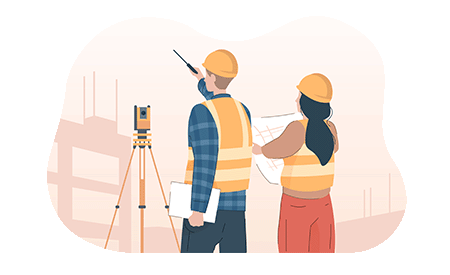
people who are more likely to be exposed

Note: There is evidence that pregnant women and those who have limited access to measures to reduce their exposure (such as using N95 respirator masks, air filters, etc.) may also be at greater risk of health impacts.
Make a Clean Air Room
During wildfires, smoke can enter your home. Setting up a clean air room at home can help reduce your exposure to wildfire smoke while sheltering indoors. Everyone can benefit from spending time in a clean air room during a wildfire, but it may be most helpful for people who are at greater risk such as people with heart disease or lung disease, older adults, children, and pregnant women.
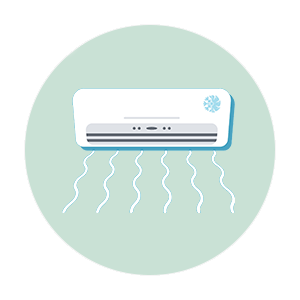
Use a portable air cleaner
- Portable air cleaners are designed to filter the air in a single room or area.
- Portable air cleaners vary in price and efficiency. Choose an option that is the right size for your room.
- Do not use an ozone-generating air cleaner.
- Run the air cleaner continuously on the highest fan speed to maximize filtration.
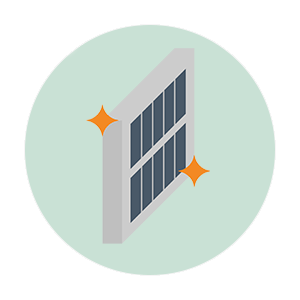
Stock up on HVAC filters
- Central furnace or HVAC filters are designed to filter air throughout a home.
- You may need to speak to a qualified HVAC professional about different filters and settings you can use to reduce smoke in indoor air.
- Stock up on replacement filters. Use a high-efficiency filter (rated MERV 13 or higher) if your HVAC system can safely use one.
- During periods of heavy smoke, plan to replace the filter in your air cleaner or HVAC system more often than recommended by the manufacturer. If you notice that filters appear heavily soiled when you replace them, you should consider changing them more frequently.
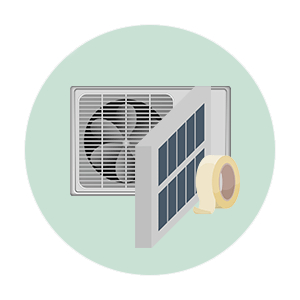
Special note: DIY Air Cleaners
- If you can't get a portable air cleaner, consider building a DIY air cleaner from a box fan and filter. Make sure the fan is a newer model (2012 or later).
- Older box fans may pose an electrical/fire hazard and should be avoided. If an older model fan is used, never leave it unattended (including while you sleep).
DIY Air Cleaner to Reduce Wildfire Smoke Indoors
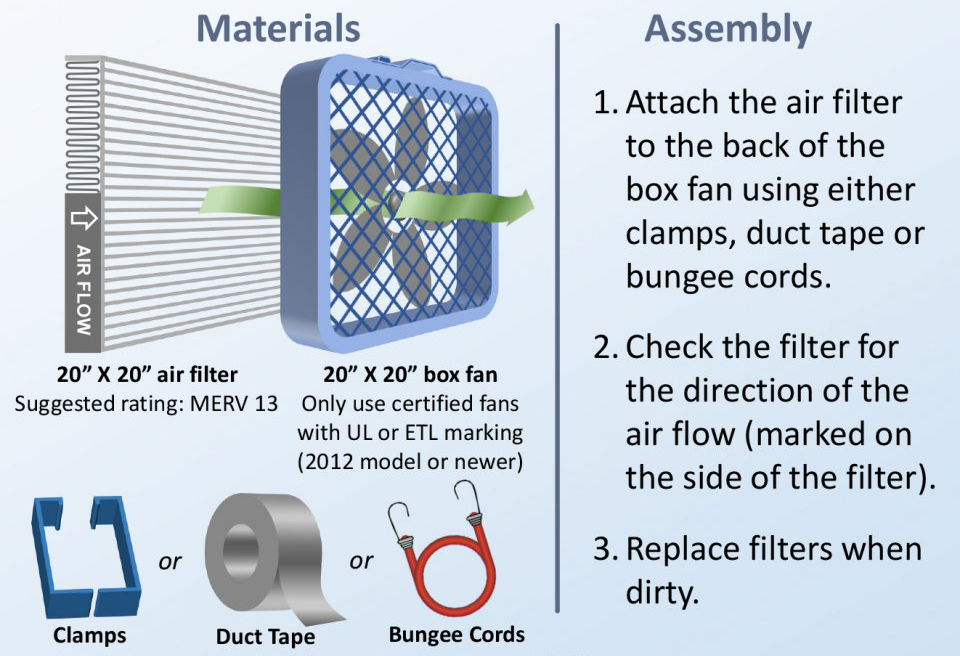 Learn about box fan safety tips here.
Learn about box fan safety tips here.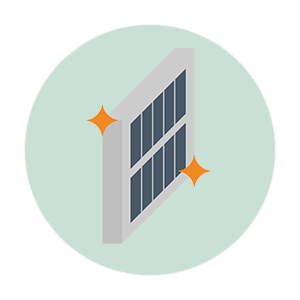
Stock up on HVAC filters
It’s important to prepare now. If you wait until smoke is in the air, supplies may be out of stock or may not arrive in time to be helpful. Make sure you have a way to keep your Clean Air Room cool without pulling in outside air that may be smoky during fires. Window air conditioners or central air conditioners can help you stay cool. Use a portable air cleaner or high-efficiency filter (rated MERV-13 or higher) in the HVAC system to filter the air.
Know Where to Get Information
During wildland fires, your air quality can change quickly. Being prepared means being aware of wildland fires, knowing where to find information on air quality, and learning how to use the Air Quality Index. Here's how you can stay in the know about changing air quality conditions near you:
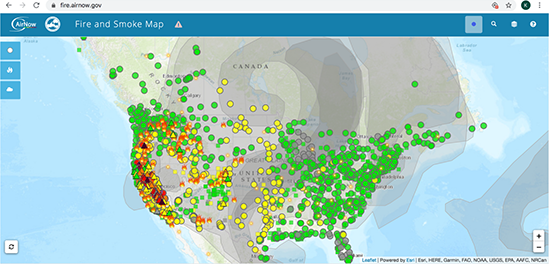
Check the Fire and Smoke Map
AirNow's Fire and Smoke Map provides the public with information on levels of particle pollution (PM2.5) in the air during fires.

Download the AirNow App
The AirNow Mobile app allows users to quickly access the Fire and Smoke Map to get air quality information for planning daily activities to protect your health.

Sign-Up for Alerts
Check with your state or local or tribal air quality agency to find out how you can sign up for local air quality alerts.
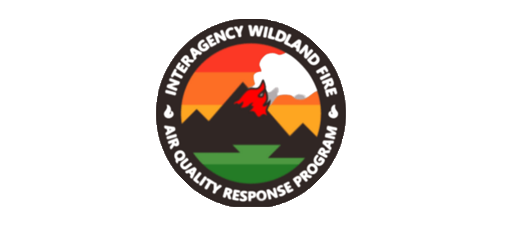
Check for Smoke Forecast Outlooks
The Interagency Wildland Fire Air Quality Response Program issues outlooks in areas where smoke from wildland fires may be a concern.









